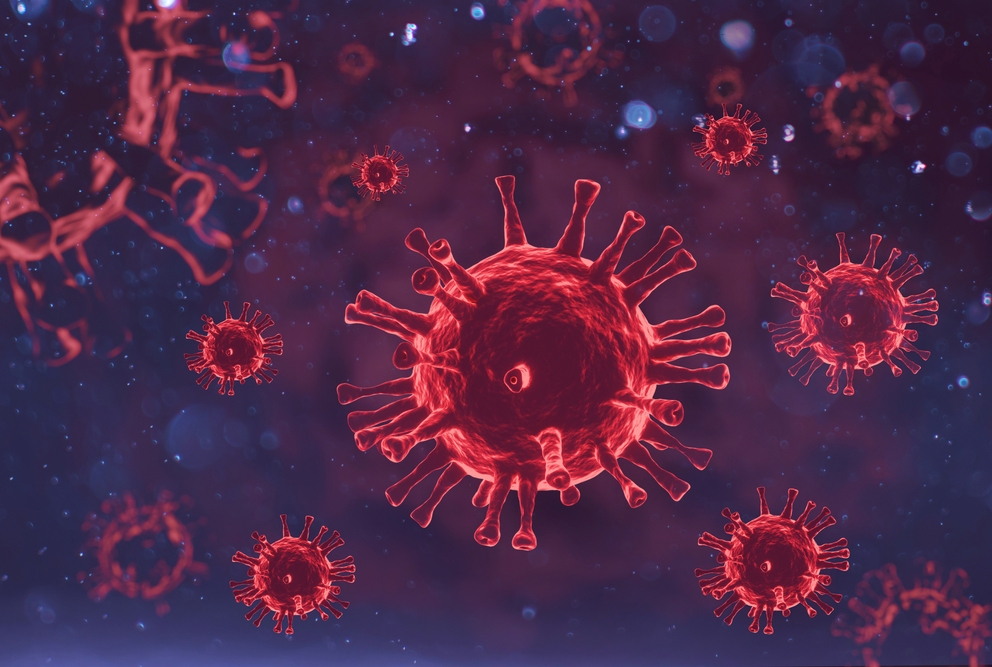Convalescent plasma did not reduce the risk of intubation or death for hospitalized COVID-19 patients in a large, international clinical trial conducted by Weill Cornell Medicine and NewYork-Presbyterian investigators in collaboration with lead investigators at McMaster University.
The study, published Sept. 9 in Nature Medicine, also revealed that patients who received convalescent plasma experienced significantly more adverse events, including needing more oxygen and worsening respiratory failure, than those who received standard care, although the rate of fatal incidents was not significantly different between groups.
More than 500,000 Americans hospitalized with COVID-19 have been treated with blood plasma donated by COVID-19 survivors, called convalescent plasma. The goal was to see if antibodies to the SARS-CoV-2 virus in the donated blood product would boost their odds of recovery.
“It has been thought that the blood plasma of COVID-19 survivors would help those seriously ill from the virus but, unfortunately, it does not,” said study co-principal investigator Dr. Donald Arnold, a hematologist and professor of medicine at McMaster University in Hamilton, Ontario. “We are cautioning against using convalescent plasma to treat COVID-19 hospitalized patients, unless they are in a closely monitored clinical trial.”
The study, called CONCOR-1, was an open-label randomized controlled trial comparing treatment with convalescent plasma to standard of care for hospitalized adults with acute COVID-19 respiratory illness. Investigators halted enrollment early in January 2021, after the study’s independent data safety monitoring committee recommended it was unlikely to demonstrate a benefit for convalescent plasma even if more patients enrolled. The trial included a total of 940 patients at 72 hospitals in Canada, the United States and Brazil. Weill Cornell Medicine led the three U.S. sites at NewYork-Presbyterian/Weill Cornell Medical Center, NewYork-Presbyterian Brooklyn Methodist Hospital, and NewYork-Presbyterian Lower Manhattan Hospital, enrolling 134 patients.
“Early in the pandemic, there was a lot of interest in convalescent plasma, even though it was unproven and not completely without risk. At Weill Cornell Medicine, we felt very strongly that it should be studied in the context of a clinical trial and compared to standard care,” said Dr. Marshall Glesby, principal investigator of the U.S. sites and associate chief of the Division of Infectious Diseases at Weill Cornell Medicine and NewYork-Presbyterian/Weill Cornell Medical Center.
Dr. Melissa Cushing, director of clinical laboratories and vice chair of the Department of Pathology and Laboratory Medicine at Weill Cornell Medicine and NewYork-Presbyterian/Weill Cornell Medical Center, learned about the study planned by Canadian colleagues and requested that Weill Cornell Medicine join in. Dr. Cushing is also a professor of pathology and laboratory medicine at Weill Cornell Medicine.
The researchers found that convalescent plasma had highly variable donor antibody content due to differences in immunological response to the virus. Different antibody profiles in the convalescent plasma significantly affected whether patients experienced intubation or death. Low amounts of antibodies, called low antibody titers, or non-functional antibodies or both, were associated with a higher risk of intubation or death.
“These findings may explain the apparent conflicting results between randomized trials showing no benefit, and observational studies showing better outcomes with higher-titer products relative to low-titer products,” said co-principal investigator Dr. Jeannie Callum, an associate scientist at the Sunnybrook Research Institute in Toronto, Ontario, and professor at the University of Toronto and Queen’s University in Kingston, Ontario. “It appears that it may not be that high-titer convalescent plasma is helpful, but rather that low-titer convalescent plasma is harmful.”
Co-principal investigator Dr. Philippe Bégin, a clinician scientist at the University of Montreal Hospital Centre (CHUM) and CHU Sainte-Justine and an associate professor at the University of Montréal, said that the harm may come from transfusing convalescent plasma containing poorly functioning antibodies.
“One hypothesis is that those dysfunctional antibodies could compete with the patient’s own antibodies and could disrupt the mounting immune response. This phenomenon has been observed previously in animal models and in human studies of HIV vaccines,” Dr. Bégin said. “The information from our large clinical trial on convalescent plasma and COVID-19 may be analyzed together with the results of several similar studies going on in the world to provide more robust information and insight that will guide clinical practice and health policy globally.”
Additional investigators on the New York team included Dr. Robert DeSimone, medical director of transfusion medicine at NewYork-Presbyterian/Weill Cornell Medical Center and assistant professor of pathology and laboratory medicine at Weill Cornell Medicine, Dr. Andy Huang, hematologist and oncologist at NewYork-Presbyterian Brooklyn Methodist Hospital and an assistant professor of clinical medicine in the Division of Hematology and Clinical Oncology at Weill Cornell Medicine, Dr. Grant Ellsworth, infectious disease specialist at NewYork-Presbyterian/Weill Cornell and assistant professor of medicine in the Division of Infectious Diseases at Weill Cornell Medicine, Dr. Timothy Wilkin, infectious disease specialist at NewYork-Presbyterian/Weill Cornell and professor of medicine in the Division of Infectious Diseases at Weill Cornell Medicine, Dr. Harjot Singh, infectious disease specialist at NewYork-Presbyterian Lower Manhattan Hospital and associate professor of medicine in the Division of Infectious Diseases at Weill Cornell Medicine, Dr. Ljiljana Vasovic, director of clinical laboratories at NewYork-Presbyterian Lower Manhattan Hospital and assistant professor of pathology and laboratory medicine at Weill Cornell Medicine and Dr. Cheryl Goss, assistant professor of clinical pathology and laboratory medicine at Weill Cornell Medicine and director of clinical laboratories at NewYork-Presbyterian Brooklyn Methodist Hospital.
“Overall, this initiative was a tremendous collaboration by hundreds of investigators,” said Dr. Glesby, who is also a professor of medicine and population health sciences at Weill Cornell Medicine and an infectious disease specialist at NewYork-Presbyterian/Weill Cornell Medical Center. “Many thanks to the research teams, patients, plasma donors, transfusion medicine staff, blood suppliers, and funders, as all of their contributions made these important findings possible.”
A version of this story first appeared on the McMaster University site.

